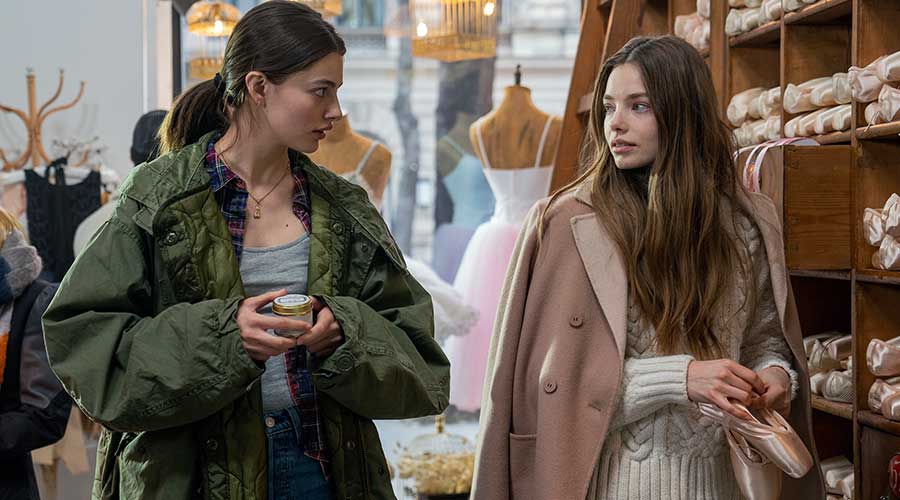What’s to watch on Netflix?
- 20 Apr - 26 Apr, 2024

Two beautiful, lithe, painfully thin dancers compete for a coveted spot in a ruthless ballet programme, come together and apart as two halves of a whole amid drugs, and hallucinations until one breaks. You’d be right in thinking this sounds like the plot to Black Swan. It’s also essentially the arch of Birds of Paradise, a surreal ballerina drama which flies awfully close to its critically acclaimed predecessor and pales in comparison.
Newcomer Kate (Diana Silvers) is an American student at a Parisian ballet academy constrained by a number of insecurities. Perennial favourite Marine (Kristine Frøseth) is hotheaded, eminently privileged and broken from the suicide of her twin brother Ollie. Both, it’s quickly revealed, are in competition for the Prize, a contract with the Paris ballet.
Marine and Kate start, naturally, as bitter rivals and roommates at the Victorian mansion that houses the academy. They fall together quickly – into the bed they share; into a pact to split the prize or not at all: into a daze of drug-induced hallucinations that uncork their undiluted love for dance and, more pressingly for the film’s nearly two-hour runtime, initiate several surreal sequences of jungle leaves, glitter, and bodies in rapture.
Again, like Black Swan, the film’s primary focus is the eroticism of a doppelganger – yin and yang, one up and one down, two conventionally beautiful girls strung along the fault lines of inhibition and expression, restraint and heedlessness, desperation and privilege. Birds of Paradise is considerably less macabre than Black Swan, and more interested in the intoxicating, jagged intimacy of late adolescent female friendship; psychedelic dance sequences aside, Smith hones in on the glances and late-night pillow talks between two friends in the trenches together – a focus that provides some momentum other than competition, even if the dialogue can’t keep pace with the feelings suggested.
The filmmaker’s push on the intense, scabby nature of rivalrous female friendship – especially as the girl’s dance fortunes shift and Marine opens up about her brother – but then drop it in favour of swift conclusion. The ballet sequences seem technically complicated, skillful and absorbing, but the film is weighed down by hallucinogenic sequences and metaphors-as-dialogue that feel redundant and indulgent, diminishing returns each time.
Birds of Paradise, then, settles into a weird, slightly unsettling middle-ground – beautiful yet hollow, intriguing yet distanced, skillfully performed without much of a beating heart. Like its principal dancers, it’s a portrait of contrasts, though the friction here doesn’t generate much heat.
COMMENTS